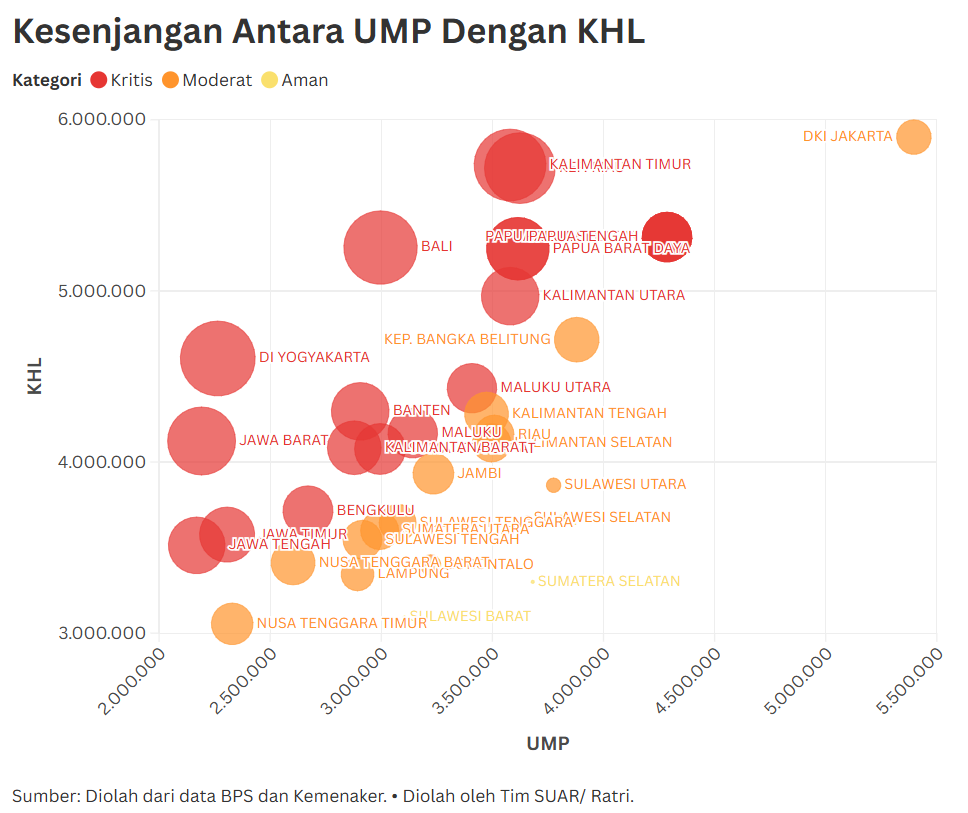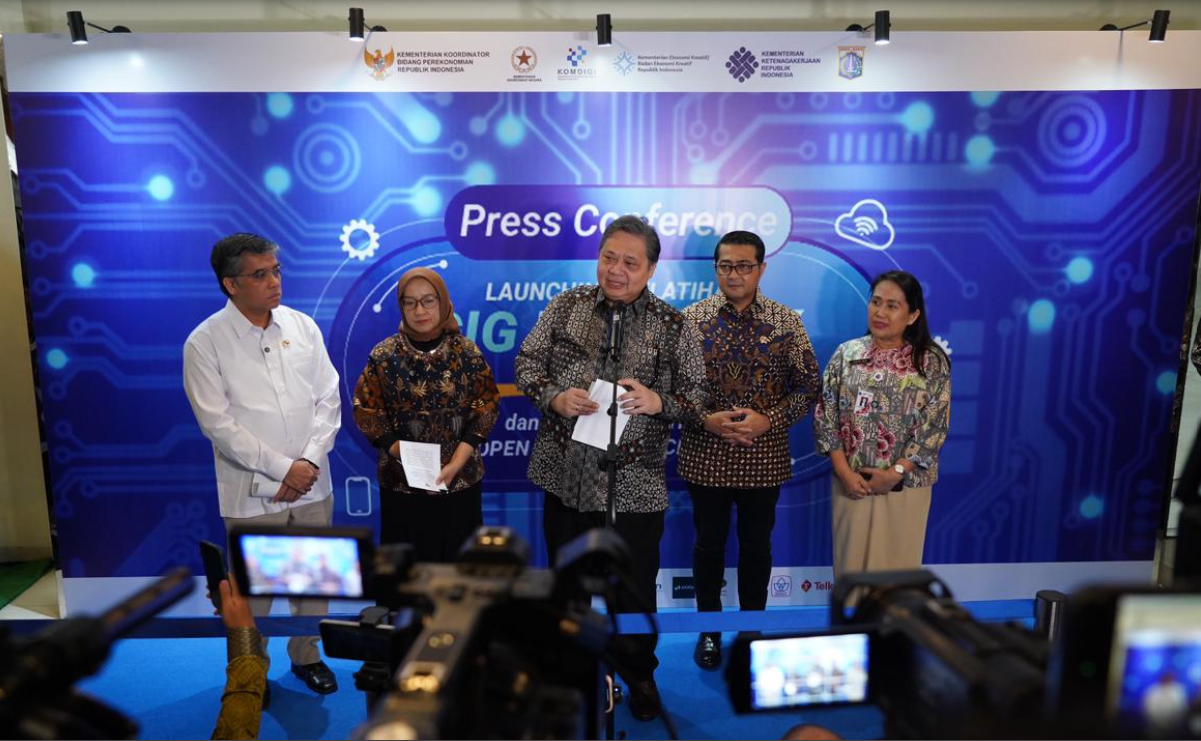Among the various factors that influence worker productivity, the obligation to care for dependent family members, both children and the elderly, is one of them. For this reason, flexible work arrangements can be one strategy, in addition to the provision of childcare facilities (daycare). The success of SMBC Indonesia in creating flexible work arrangements is a successful example of increasing productivity in harmony with worker welfare.
These tips were revealed in the public dialogue "Flexible Working Arrangement to Support Working Parents' Productivity" commemorating the International Day of Care and Support 2025 organized by the Indonesia Business Coalition for Women Empowerment (IBCWE) in collaboration with the Indonesian Employers' Association (Apindo) in Jakarta, Wednesday (29/10/2025).
Deputy Chair for Sustainable Development of Apindo, Nurdiana Darus, emphasized that discussions about working parents are very relevant in the Indonesian context, considering that family care responsibilities are currently a factor limiting the mobility and productivity of workers, especially women. This can be seen from the level of female participation in the workforce, which is still at 56.7% according to data from the 2025 National Labor Force Survey (Sakernas).
According to Nurdiana, the impact of reduced productivity of workers with family care responsibilities is very real for workers, companies, and even the country. The Head of Sustainability and Corporate Affairs of Unilever Indonesia cited research from the Institute for Fiscal Studies (IFS) in 2023 which revealed that the loss of an average of 4 days per worker per year due to family care responsibilities has losses equivalent to 1.7% of the company's total payroll burden.
"If this 1.7% is multiplied by GDP, this is a loss opportunity also for our country. With the level of workforce participation still stagnant, Indonesia is losing the potential of half of its productive population," said Nurdiana.
Flexible work arrangements, according to Nurdiana, are one of the keys to answering the challenge of balancing family and career responsibilities without sacrificing productivity, especially with the availability of a number of legal-normative frameworks that provide support for these policies.
"There is already a Regulation of the Minister of Manpower that requires companies to have daycare, but its implementation in the field requires further collaboration so that companies of various scales can contribute optimally, creating an inclusive, productive work ecosystem and increasing our competitiveness," she concluded.
Solid foundation
Loopholes in labor regulations can be identified as one of the causes of companies' non-compliance with the obligation to provide daycare infrastructure in the office environment. Therefore, in addition to closing loopholes for evasion, updating regulations is a crucial factor so that flexible work arrangements have an explicit legal basis.
Expert Staff of the Directorate of Industrial Relations Development and Social Security of Manpower, Angga Yudha Zunivar, stated that Law Number 13 of 2003 concerning Manpower has regulated welfare facilities in the form of childcare facilities. The law stipulates that the place adjusts to the company's capabilities and the needs of workers. This becomes a loophole for companies to ignore these rules.
"Currently, we are working with the International Labour Organization (ILO) to refine the standard guidelines for childcare facilities, by providing alternatives not only in the form of physical facilities, but also policies or programs that can be selected based on the capabilities and needs of workers, including flexible work arrangements," said Angga.
In addition to childcare facilities, there are a number of legal bases as a foundation for proposals for flexible work arrangements, starting from Article 23 of Government Regulation Number 35 of 2021 concerning Fixed-Term Employment Agreements (PKWT) and Article 30 of Law Number 4 of 2024 concerning the Welfare of Mothers and Children in the First Thousand Days of Life.
"In Law Number 4 of 2024, every working mother has the right to sufficient time for the best interests of the child with the flexibility to be able to obtain freedom and flexibility, with adjustments still paying attention to their performance achievements. This sufficient time can be regulated in the employment agreement and company regulations," he explained.
Discretion, not benefit
With a strong legal foundation, the experience of developing flexible work arrangements is an experiment that combines tips for creating a productive work atmosphere while maintaining employee retention. Strategic Human Resource Manager of Bank SMBC Indonesia, Denty Avianty, explained that flexibility is one of the attractions offered by SMBC to young employees.
"We created the Flexi-Style program and formed a Diversity and Inclusion (D&I) division to create an inclusive work atmosphere. The most important thing is trust from management to start flexible work arrangements that we call Flexi-Hours, Flexi-Style, and Flexi-Location," said Denty.
By launching the Digital Working Life and Flexi-Office in New Normal project in 2020, SMBC Indonesia uses special tools to manage employee check-in and check-out systems, manage systems that can be accessed from home, and work closely with the risk management division so that the project becomes a corporate responsibility, not just the HR Department.
In addition to managing employee attendance with a special application, SMBC also set a response time rule of a maximum of 30 minutes after receiving phone calls and emails. According to Denty, this provision was later eliminated due to the realization that without management's trust in employee performance outside the office, a flexible system would not function optimally.
"In addition to communication, we also conduct many campaigns to remind employees about the do's and dont's, conduct surveys verbally and systematically on an annual basis to ensure that technology is running accordingly, flexibility does not affect performance, and employees remain on-track," she said.
Denty revealed that the 1+4 formula, which is 1 day work from office (WFO) and 4 days work from home, has had a significant impact on reducing the turnover rate, increasing employee retention, maintaining work-life balance, and reducing emissions from office operations. With measurable monitoring, Flexi-Location allows employees to work from home with specific indicators to ensure its effectiveness.
"Managing flexible work requires a very detailed mechanism. At SMBC, Flexi-Work remains formal, approved, and is at the discretion of management, which can be revoked at any time. Superiors still have the authority to ask their subordinates to come to the office. When employees WFH, it doesn't mean they can do whatever they want and go anywhere," Denty asserted.
Read also:

However much this policy is a dream that makes other bank employees jealous, Denty does not deny that there are various challenges that the HR department must face in developing this flexible work mechanism, ranging from delayed decisions, differences in standards and work schedules between departments, to irresponsible employees.
"We have repeatedly emphasized to employees to always stand by and be ready to come to the office, because this is not a benefit, but a privilege and management discretion, and is not included in the employment agreement, so flexibility also needs to be monitored closely," she said.
Clear Boundaries
In addition to internal mechanisms, the impact of flexible work arrangements for employees is the need to provide clear boundaries between work and family in terms of space and time. As a working mother, SMBC Indonesia's Benefits and Performance Manager, Tiara Ardwi Saputri, considers this another side of the privilege she gets as an employee.
"Without daycare facilities or allowances, flexible work arrangements are already a significant privilege. My friends who take care of the household are also surprised how I can still work from home, while taking care of children and in-laws. Although there are also challenges when people at home ask if we are really working," Tiara said with a burst of laughter.
Another side of flexible work arrangements is that working hours can become longer and online meetings can go on continuously, in addition to children being able to interrupt in the middle of urgent work or important meetings. Sending children to early childhood education is Tiara and her partner's strategy to provide optimal morning and afternoon working hours from home.
"Because not all companies implement the same policy, especially since my husband works WFO, everything that happens at home still has to be taken care of by me. Everything is charged to me because I have the privilege of working from home. The downside is having to ask for permission back and forth or giving up certain days to work," she said.
Understanding such needs, Denty Avianty added that SMBC provides a parenting club that holds children's health seminar sessions and a Mother Support Group that gathers regularly to facilitate young mothers to share stories and experiences.
"In addition to work flexibility, we also provide many support systems to help employees not only be productive, but also have a safe space to share stories and gain psychological, social, and economic enrichment through the employee assistance program," Denty concluded.







